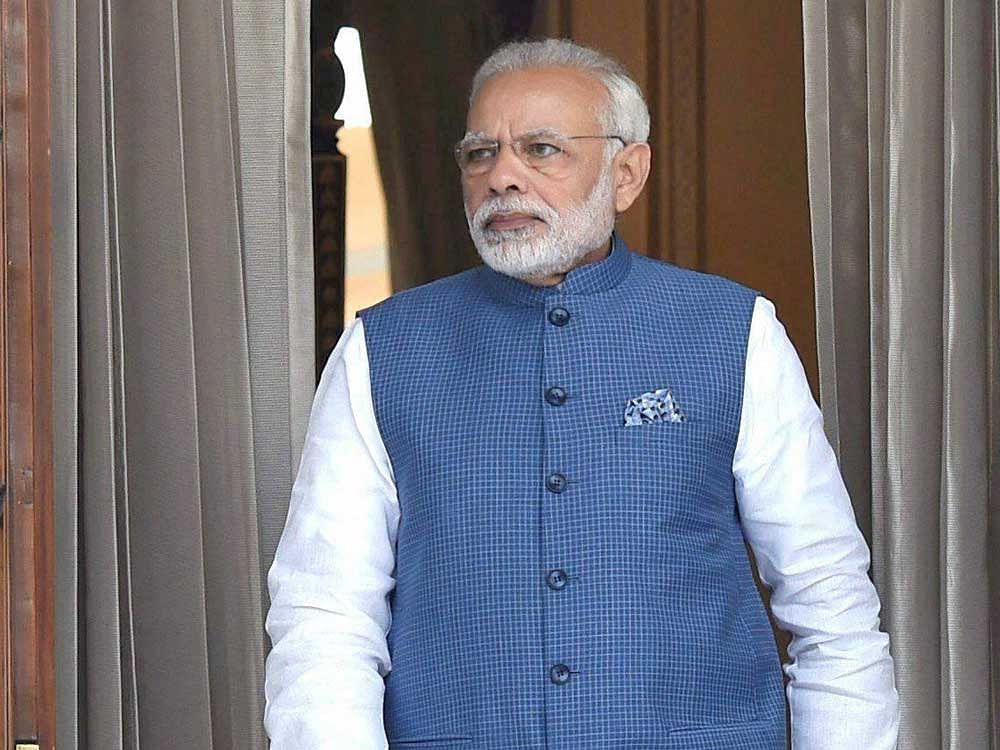The idea of simultaneous polls mooted by Prime Minister Narendra Modi has almost become a proposal now, with the Election Commission of India working furiously to make it a reality. It is being said that, among other advantages, simultaneous polls would bring down the cost of elections. But it is the political parties and candidates that spend huge amounts of money during elections, not the exchequer. It must be said that political parties in India do not face any resource crunch because the corporate houses take full care of that. Moreover, the same Modi government has ensured by floating the new electoral bonds scheme and by lifting the ban on foreign contributions to political parties by amending the Foreign Contribution (Regulation) Act, that the party in power is flush with funds. Therefore, curbing expenses cannot be a reason for proposing simultaneous polls. Indeed, it is difficult to believe that the political class is concerned over election expenses. So, what could be the real reason for seeking simultaneous polls?
There seems to be a feeling in ruling party circles that we are having far too many elections, and far too frequently. The prime minister is having to spend too much time campaigning, which has left him little time to attend to governance. These are facts that nobody can deny. But the remedy lies not in having one election for the national parliament and 29 assemblies. It lies in the head of the government choosing not to campaign everywhere and leaving that job to his party men.
Let us look at the practical aspects of this proposal for simultaneous polls. Is it really possible to hold elections simultaneously to the Lok Sabha and all the assemblies? An assembly is elected and functions for a term of five years, unless it is dissolved earlier. A dissolution occurs when there is a breakdown of the constitutional machinery and the President takes over the administration of the state. A good number of assemblies were elected last year and some this year. If simultaneous polls are to be held along with the next Lok Sabha election, these assemblies will have to be dissolved first.
On what ground will they be dissolved? Breakdown of the constitutional machinery? Unless Article 356 is amended to provide for dissolution for the purpose of holding simultaneous poll, it is not possible. But can the Constitution be amended in the present situation? There is no political consensus on it.
Similarly, a certain number of assemblies will be elected this year. To hold elections to these assemblies along with the Lok Sabha election, amendment of Article 172 of the Constitution as well as of Section 14 of the Representation of People Act, 1951, will become necessary. The normal term of the assembly, under Article 172, is five years. Further, this Article says, “the expiration of the said period of five years shall operate as a dissolution of the assembly.” The life of the assembly cannot be extended except when an internal emergency is in operation. Similarly, under the proviso to Section 14 of the RP Act, 1951, the process of election should be completed before the expiry of the term of the assembly. Only in case of premature dissolution of the House, a window of six months is available for the Election Commission to conduct the elections. Simultaneous poll would be possible only after these constitutional provisions are amended.
Another point to consider is, what will happen to an assembly which is dissolved one year after the simultaneous poll is held? Will it remain in suspended animation for another four years? Political instability cannot be ruled out in the states merely because of simultaneous elections and strong leadership at the Centre.
As a matter of fact, periodic state elections serve useful purposes. One distinct advantage for the ruling party at the Centre is that they will be able to know the mood of the electorate in advance and correct course in time to face the voters in the general election. Secondly, periodic elections keep the rulers in constant touch with the people. Democracy is functional only when the rulers are compelled to keep in touch with the people and the people are allowed to constantly assess the performance of the rulers and give their verdict thereon. Therefore, in the interest of a functioning democracy, status quo should be maintained.
It does not make much sense to say that frequent elections adversely affect governance. There is no evidence to back it up. In fact, many crucial decisions have been taken just before elections. Demonetisation is one such example.
That decision was taken a couple of months before the Uttar Pradesh election. If the complaint is that frequent elections require the ministers or chief ministers or prime minister to participate in the election campaigns too often, the answer is that campaigning for his or her party is not one of their constitutional duties. It is essentially the job of the party functionaries.
(The writer is a former Secretary General of the Lok Sabha)
